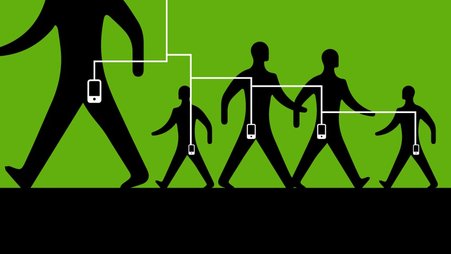President Obama addressed NSA reform in a forty minute speech this morning in which he proposed a few welcome reforms and many which could normalize some of the NSA's most dangerous practices. The ACLU, Electronic Frontier Foundation, and journalist Glenn Greenwald have already issued responses well worth reading. We'd like to address a few points in more detail:
While the President's decision that any search of the mass phone records database will now require judicial review is an important one, he still insists the records of millions of Americans should be held by either the government or a private party. In doing so, the President is overlooking a critical point: The Fourth Amendment was written to protect Americans against unwarranted searches and seizures. The NSA and the US government are trying normalize an interpretation in which the 'seizure' part of the Fourth Amendment does not apply. The mere collection of innocent American's private information is a violation of their privacy, no matter if the information is ultimately held by the government or by a company through government mandate.
It's worth noting that while the President alluded to the use of surveillance in the American Revolution, he failed to mention the Revolution was sparked in large part by Britain's use of general warrants—i.e. mass surveillance—in the first place. Shifting the mass phone records database from government to private hands does nothing to alleviate those same concerns Americans have today—especially considering the long history telecoms have working hand-in-hand to facilitate illegal surveillance. As Senator Ron Wyden said today, "We must all remember that the very act of bulk collection of private data undermines Americans’ constitutional rights."
In the same vein, the Presidential directive released on mass data collection from overseas only purports to regulate the *use* of the bulk collection databases, it does nothing to curtail or stop the mass collection of millions of people's data in the first place. The use cases are also defined so broadly, it's hard to see how they change anything at all.
With National Security Letters, Obama vaguely promised to end perpetual gag orders, but failed to provide any specifics. Critically, NSLs will continue without judicial review, thereby continuing to threaten the privacy of tens of thousands of Americans, including many sources and journalists. The President also made no mention of one of the most serious Snowden revelations so far: how the NSA is undermining and sabotaging common encryption used across the Internet, thereby putting everyone's data at risk.
All of these issues—mass metadata surveillance, National Security Letters, and the breaking of encryption—affect every American and many people around the world, but they are all tools that threaten the foundations of journalism. If sources and journalists cannot speak to one another without being monitored then the public doesn't just lose its own privacy, but a lot of information about how its government operates behind closed doors is lost as well.
To be sure, there are significant reforms the President said he would support: requiring judicial review every time the NSA queries its massive database of American phone numbers, increased transparency for significant FISA court opinions, putting a privacy advocate in front of the secret court. But many of the changes suggested by Obama are cosmetic and some may even normalize and legalize many of the practices Americans find so abhorrent. Obama's recommendations should be seen as the floor—and not the ceiling—for the debate going forward. In the coming days and weeks, Congress has the ability to enact much stricter reforms which can really put to rest the fears of so many that the NSA is ultimately unaccountable.
We would be remiss if we didn't point out that this debate—which Obama today said "will make us stronger"—would not have been possible without Edward Snowden. In the most disingenuous part of his speech, President Obama said he was just about to initiate a comprehensive review of surveillance before the Edward Snowden disclosures started. This is plainly false. Many have been trying to bring transparency on the NSA for the first five years of his presidency, and uniformly, the administration has stonewalled those efforts.
Despite all this, the government is still charging him under the pernicious Espionage Act, which has him facing decades or life in prison with no opportunity to argue he is a whistleblower in any potential trial. Any NSA reform should be accompanied by the reform or repeal of the Espionage Act.
Note: both Glenn Greenwald and Edward Snowden are members of our board of directors.




